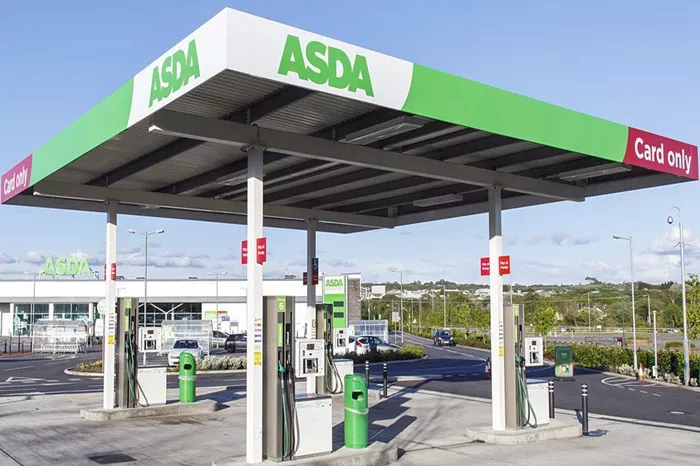Asda, one of the leading supermarket chains in the United Kingdom, has garnered attention for its remarkably low fuel prices. For years, motorists have flocked to Asda’s petrol stations, attracted by prices that consistently undercut competitors. This article delves into the multifaceted reasons behind Asda’s ability to offer cheap fuel, exploring its innovative pricing strategies, market positioning, and the broader implications for consumers and competitors alike.
Asda’s Trailblazing Approach: Online Fuel Price Transparency
One of Asda’s pioneering moves in the fuel retail sector was its decision to provide consumers with real-time access to local fuel prices. As the first supermarket to publish fuel prices for each of its gas stations online, Asda introduced a level of transparency previously unseen in the industry. This initiative empowered consumers, allowing them to compare prices and make informed decisions before refueling. By leveraging technology to enhance price transparency, Asda established itself as a consumer-centric brand committed to delivering value and convenience.
The Price Reduction Gambit: Asda’s Commitment to Savings
Asda’s commitment to offering competitive fuel prices was further underscored by its strategic decision to reduce prices across its network of petrol stations. In response to market dynamics and consumer demand, Asda announced a significant reduction in gasoline prices by 5 pence per liter and diesel prices by 3 pence per liter. This move aimed to alleviate the financial burden on drivers and reinforce Asda’s reputation as a cost-effective fuel provider.
With 323 gas stations scattered across the UK, Asda’s pricing strategy reverberated throughout the market, shaping consumer expectations and influencing competitors. The average price per liter of gasoline at Asda’s outlets stood at 174 pence, while diesel was priced at 185 pence, making it an attractive option for budget-conscious motorists.
Evolution of Asda’s Pricing Strategy
While Asda has long been synonymous with aggressive pricing and cost leadership, the dynamics of the retail landscape have prompted strategic adjustments. Historically, Asda’s dominance in the low-price market segment was unrivaled, with competitors struggling to match its pricing prowess. However, in a strategic shift in 2022, Asda recalibrated its pricing strategy, opting for a more gradual approach to price reductions.
This strategic pivot signaled a departure from Asda’s previous strategy of rapid price cuts aimed at maintaining its position as the undisputed price leader. Instead, the supermarket giant opted to prioritize profitability by reducing prices at a slower pace. This nuanced approach reflects Asda’s strategic agility and its ability to adapt to changing market conditions while balancing the imperatives of profitability and consumer value.
See also: 6 Reasons Why Diesel Is Expensive Than Gasoline
The Price Anchoring Phenomenon: Asda’s Influence on Market Dynamics
Asda’s formidable presence in the fuel retail sector has not only reshaped consumer behavior but also exerted a profound influence on market dynamics. Central to Asda’s pricing strategy is the concept of price anchoring, wherein the supermarket chain establishes itself as the benchmark for fuel prices. By consistently offering the lowest prices among supermarkets, Asda effectively anchors consumer perceptions of fair pricing, compelling competitors to adjust their pricing strategies accordingly.
The price anchoring effect has far-reaching implications, creating a competitive environment where rivals are compelled to match or undercut Asda’s prices to remain viable in the market. This phenomenon underscores the pivotal role played by Asda in shaping industry norms and fostering price competition to the benefit of consumers.
Consumer Impact and Empowerment
The implications of Asda’s pricing strategy extend beyond the realm of corporate strategy, profoundly impacting consumers and their purchasing behavior. By providing transparent access to fuel prices and offering competitive rates, Asda empowers consumers to make informed decisions and maximize savings. The ability to compare prices online enables motorists to identify the most cost-effective refueling options, thereby optimizing their expenditure on fuel.
Furthermore, Asda’s commitment to reducing fuel prices serves as a boon for consumers, particularly in an era marked by economic uncertainties and fluctuating fuel costs. The savings accrued from Asda’s discounted fuel prices translate into tangible benefits for households, freeing up disposable income for other essentials or discretionary spending.
Implications for Competitors and Market Dynamics
Asda’s formidable presence in the fuel retail sector has not gone unnoticed by competitors, who are compelled to navigate the complexities of price competition and consumer expectations. The supermarket giant’s aggressive pricing strategy exerts pressure on rivals, forcing them to recalibrate their own pricing strategies to remain competitive.
Moreover, Asda’s strategic pivot towards a more gradual approach to price reductions presents a strategic conundrum for competitors, who must strike a delicate balance between profitability and market share. The absence of Asda’s aggressive price cuts may embolden competitors to explore alternative avenues for differentiation, such as enhancing service quality or diversifying product offerings.
Conclusion
In conclusion, Asda’s ability to offer cheap fuel is underpinned by a combination of innovative pricing strategies, market positioning, and a commitment to consumer value. From pioneering online fuel price transparency to implementing strategic price reductions, Asda has consistently demonstrated its prowess in the fuel retail sector.
Asda’s influence extends beyond its immediate consumer base, shaping industry norms, and fostering price competition that benefits consumers. While the supermarket giant’s pricing strategy continues to evolve in response to changing market dynamics, its legacy as a trailblazer in the fuel retail sector remains indelible.
As consumers continue to prioritize value and affordability, Asda’s commitment to offering cheap fuel serves as a testament to its unwavering dedication to meeting consumer needs. In an era marked by economic uncertainties and shifting consumer preferences, Asda’s strategic agility and consumer-centric approach position it as a formidable force in the fuel retail landscape.
Related topics:

